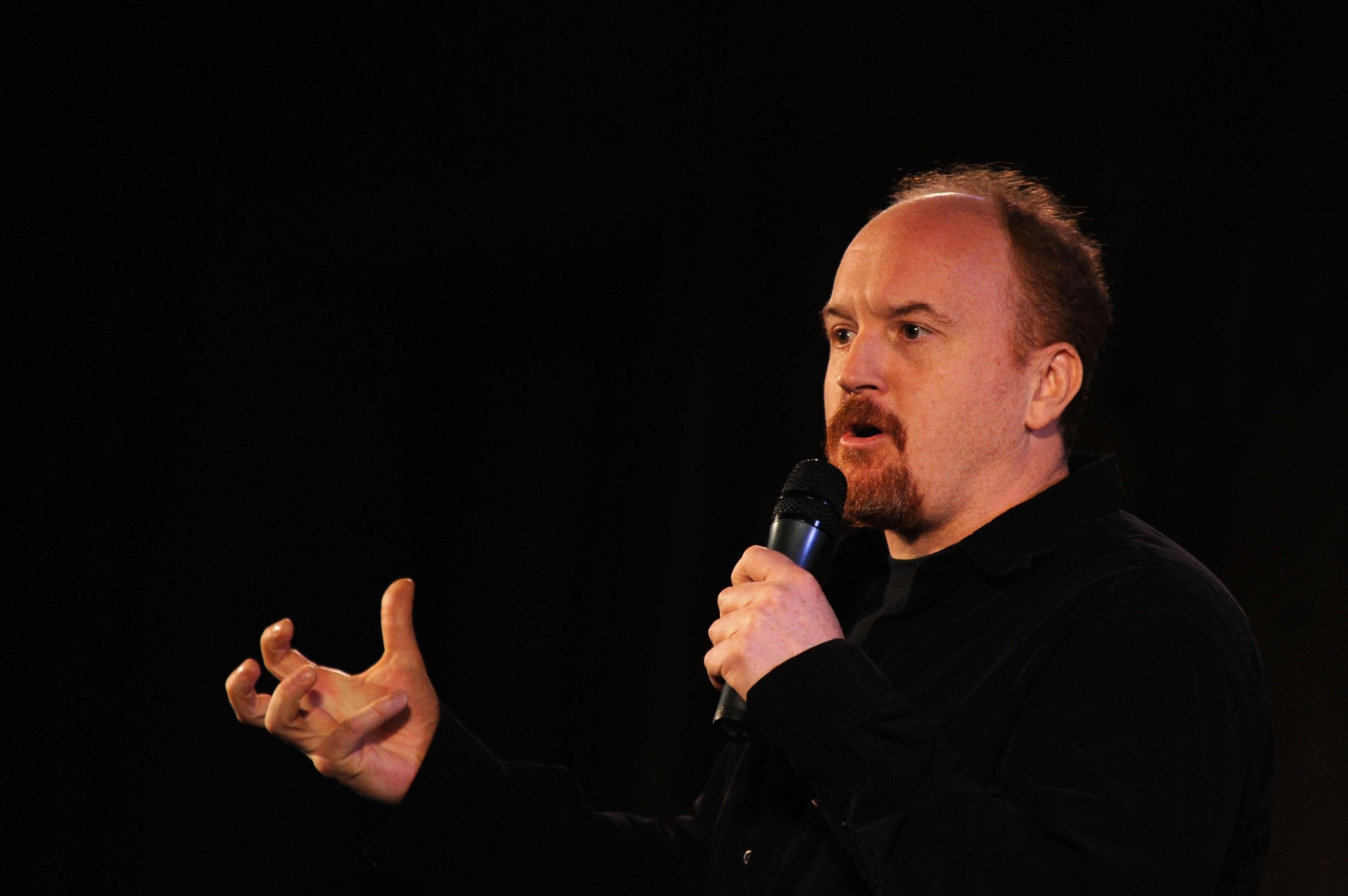Back in August, Louis C.K. said to Joel Lovell in GQ, “I’m not a political comedian.” He was explaining his regret for the remarkably profane tweets he posted both at and about Sarah Palin a year before. “It was a point of pride” for C.K. “that he had credibility with the right wing,” Lovell explained. Though he’s been called “the comedy love child of Bill Hicks and George Carlin,” C.K. has never been as openly political as either of those comics (both of whom he’s praised—Carlin in particular). When he wrote a political argument between himself and his conservative friend Nick DiPaolo (a fellow comedian) into the first season of his great FX show, Louie, he made a point of presenting himself as the more unreasonable of the two.
I thought of those GQ comments while watching C.K. perform at the Beacon Theatre in New York City on Saturday night, the last performance on his latest tour. (He filmed a new special—which will become available online in December—the evening before.) The routine was by no means a departure from the brilliant work C.K. has been doing for the last few years—it included hilarious bits about sex, being a dad, getting old, and so on. But several extended riffs, taken together, gave the evening a more political cast than his previous one-hour specials.
Chief among these was a bit about the environment and Christianity. After a few jokes on littering in New York City, C.K. said that if you believe God created the Earth for all of us—which he doesn’t, mind you—then it seems sinful to trash the place. It wasn’t quite Bill Hicks talking about pot, but it was at least in the same ballpark.
It was even harder not to think of Hicks when C.K. did another planetary riff, this one concerning the beauty of evolution and the idiocy of creationism, a subject Hicks also addressed—albeit in his own, more abrasive manner.
Another rant, about the awfulness of white people, felt more familiar; that’s a subject C.K. has touched on before. But even these jokes seemed more politically pointed than usual. A bit on the way European colonists treated the Indians, for instance—giving them the wrong name, deciding not to change it when they realized the mistake, and also killing most of them—brought George Carlin vividly to mind: American imperialism was a topic he returned to often.
Does any of this herald a new direction for C.K.? Who knows: As he said at the top of the show, it was the last time he would ever tell these jokes; when he woke up on Sunday, he would be starting all over again. It did make me reflect, though, on how much of C.K.’s appeal is essentially moral. Whether the subject is parenting or gay marriage, he harps on hypocrisy throughout his routines. He avoids the tag “political comedian” in part because he rarely zeroes in on specific current events—and also, perhaps, because he always makes his own hypocrisy part of the gag. So you not only admire him for what he says, you also like him for what he seems to be—an ordinary, flawed human being. I do, anyway.
